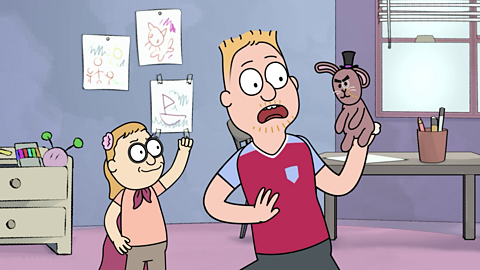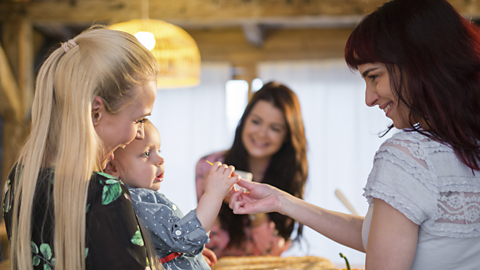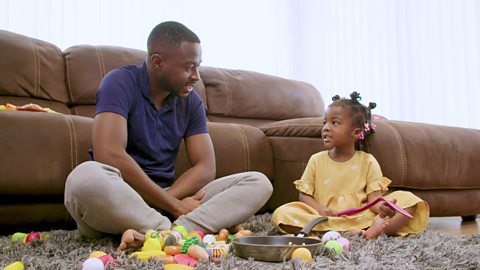Babies and toddlers often get clingy and cry if you or other carers leave them, even for a short time.
It can be really frustrating for parents, especially if you just want to have a shower or go to the toilet in peace, but it is a completely normal part of your baby's development.
But is there a way to make being apart as easy as possible for your baby or child? In the video below, we highlight some of our top tips for dealing with separation anxiety in babies and young children.
You just need to leave your child with your Nan, so you can pop to the shops for five minutes, but every time you try to leave,t hey cry for at least ten minutes. Or is it ten hours…? Feels like ten hours!
When your child doesn't want you to leave, it's called separation anxiety .Doesn't sound great does it? But it's common from around six months onwards, so don't feel guilty - it's normal.It's all part of your little one learning you still exist when they can't see you! And it's natural for your baby to miss you or feel anxious without you - it's a sign they like you! And they usually grow out of the anxiety, even if you don't!
So how can you make being apart as easy as possible for your baby or child? Practise short separations from your little one, and they'll learn that if you leave them, they’ll be OK and you will come back. Leave them with someone they know well, so they feel comfortable and safe. As they get older, gradually work towards longer separations, and before you know it, you're leaving them in less familiar settings, like nursery!
Be positive as you say goodbye. Smile and wave, be confident and happy. You might be feeling worried, but don't show it. If your child picks up on it, they might become worried too. And leave at a good moment. Can you time it for after naps or mealtimes? It probably won’t stop YOU feeling tired and restless, but one out of two ain't bad! If they're older, reassure them as you leave. Talk about where you're going and what you'll do together later. Use clear words, so they start to understand they have something to look forward to, like -"Daddy’s going to the shop, and I’ll be back by tea-time.Then we can play with Bunny!"
Look, being apart is hard, but just think how lovely it'll be for both of you when you’re back together again!
What is separation anxiety?
Separation anxiety is when your child just doesn’t want you to leave them in an unfamiliar situation, whether this is at nursery or with grandparents or other relatives.
It is very common in children from around 6 months of age. You might feel guilty or upset at the sight of your child crying or getting worried and sad whenever you leave, but it is completely normal and something lots of parents go through.
What causes separation anxiety?
Separation anxiety is part of your child developing their understanding of the world and their place within it.
It’s a sign they like you when they get upset – they’re worried that when you leave their sight, you might no longer exist!
Over time, they develop the understanding that when you’ve disappeared out of view, it doesn’t mean you’ve disappeared altogether and so usually children grow out of it as they come to learn this.
Tips for dealing with separation anxiety
1. Practise short separations from your little one. Over time they'll learn that if you leave them, they’ll be OK and that you will come back.
- Leave them with someone they know well, so they feel comfortable and safe.
- As they get older, gradually work towards longer separations and leaving them in less familiar places like nursery.
- Get more advice leaving your baby with family or friends in this article.
2. Be positive as you say goodbye.
- Smile and wave confidently as you leave them. You might be feeling worried, but don’t show it - if your child picks up on it, they might become worried too.
3. Talk about what you'll do together later
- If your toddler is feeling anxious, talk to them about what you're going to do when you see them again so they have something to look forward to with you.
4. Make saying goodbye a positive time
- If you're leaving your baby for the first time (or the first time in a while), try to smile and wave confidently and happily, even if you're feeling worried and sad.
- Babies and toddlers can pick up on how you're feeling.
5. Play peekaboo
- Peekaboo is great for helping develop your baby's sense of 'object permanence'.
- This is the understanding that you don't just disappear from the world when they can no longer see you.
- Find out more about the science of peekaboo here.
6. Leave at a good moment.
- Can you time leaving them for after a nap or meal? This might help them to feel less tired and restless.
Created with help from child psychologist Dr Claire Halsey and child development researcher Dr Michelle Lowe.






